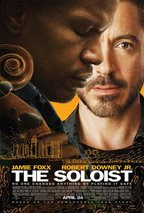The life of a mentally ill person is messy, and difficult, and often heart-rending. And what is interesting about such a person is that it is by no means simply a matter of some chemical imbalance in the brain, though that can be a large part of the problem. There is plenty of clinical evidence to support the view that a mentally ill person can live a much more normal life with plenty of love and friendship, indeed there is even evidence that such relationships can go some distance to change the chemical imbalances in the brain. Imagine that. We are fearfully and wonderfully made, and are at the end of the day, psycho-somatic wholes, who are often far from whole. And of course as a culture gets more ill, people get more ill as well, and the ones who most often go down for the count first are the sensitive souls— musicians, poets, artists, the one’s who live out of the life of the soul and express in words or musical sounds. When the world is sick and fallened and abnormal, what then counts as normal, any more?
One such person with largeness of soul is Mr. Nathaniel Anthony Ayers Jr. Yes, he is a real person, and the movie ‘the Soloist’ attempts to tell the story of some of his life, which to say the least is still a work in progress, but then that is true of all of us. Played by Jamie Foxx with empathy and sympathy and conviction (an Oscar worthy performance) this story, while hard to watch, is not hard to get emotional about. Most of us have had someone in our lives who at some juncture needed serious counseling, or medicine, or both because they were, or were becoming mentally unwell. What makes Mr. Ayers’ story all the more remarkable is that he was and is a musician gifted by God with a rare talent for playing music— in this case primarily stringed instruments. And Steve Lopez (played well by Robert Downey Jr.), exceptional columnist for the L.A. Times has chronicled his life first in columns and then in the form of a book. Here is a glimpse of the real Mr. Ayers…
The movie is as moving as such a disjointed and painful life can be, and indeed it gives glimmers of hope. I honestly don’t understand those reviewers who don’t get this movie simply because in form as well as continuity it seeks to tell the tale in a manner that suggests the incompleteness and messiness and troubling aspects of the story. This man has not led and is not leading a nice and tidy life, nor is it all happily ever after in the end. Authenticity rather than fantasy is what the director seems to be striving for and capturing. So, for about two hours one walks a mile with Mr. Ayers, and with his ‘friend’ Mr. Lopez. Mr. Lopez is not spared criticism in this movie, for indeed he did not originally set out to be a friend, he set out to write a remarkable story. And there is indeed a Christian under-current to the movie, ranging from the way the cello t
eacher is portrayed to the way Mr. Ayers prays the Lord’s prayer, but in his less lucid moments thinks Mr. Lopez is either God or Neil Diamond (what a juxtaposition— I can hear ‘Brother Love’s Salvation Show playing now in my head). There is also an interesting interview scene with an atheist where the atheist admits– “its hard to build community around having something you don’t believe in common.” For sure.
Mr. Ayers has a profound and abiding love for Beethoven, and this movie shows over and over how, as Shakespeare once said, “music soothes the savage breast” even of a mentally ill person. Beauty, real beauty can do that. It can take you far from your troubles and even draw you close to God. And make no mistake, when you have become ill whilst becoming a world class cellist at Julliard, and then crashing and burning completely, you definitely need a little help from above. I must say I like Mr. Ayers taste in music. He goes for the best. But he had become a street person, a person of no fixed address, a person cast aside as the flotsam on the sea of life. This story is more about learning how to become less selfish and more loving and more friendly even towards those hard to love than it is about music however. This story reminded me of the story of a famous hymnist who lived early in the twentieth century and was incarcerated due to his mental illness. The story goes that he, Mr. F.M. Lehman, died in his confined cell, having written on the padded walls the following words…
Could we with ink the ocean fill,
And were the skies of parchment made,
Were every stalk on earth a quill
And every man a scribe by trade,
To write the love of God above
Would drain the ocean dry.
If that verse is the mark of an unhinged mind, then we need more unhinged minds in this world.
Had Jesus lived in L.A. in my life time, Mr. Ayers is surely one of the people he would have spent time with. And so should we. Go see this movie, but take a box of kleenex with you. “Now faith is the assurance of things hoped for…”


